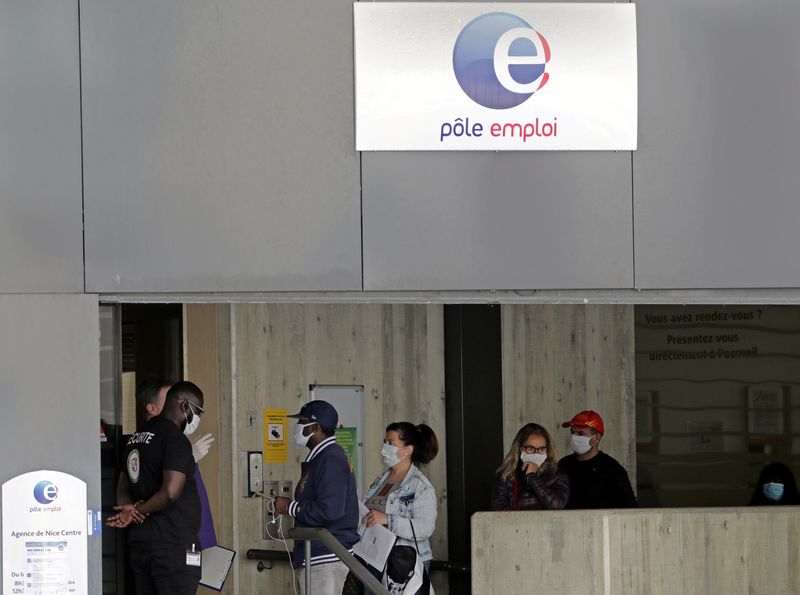By Leigh Thomas
PARIS (Reuters) -France's unemployment rate fell in the final quarter of last year to the lowest level since 2008, data showed on Friday, boosting Emmanuel Macron's economic credentials less than two months before a presidential election.
The unemployment rate fell to 7.4% from 8.0% in the previous three months, the INSEE statistics agency said. A Reuters poll of eight economists had on average forecast 7.8%.
It was the lowest level of unemployment since the third quarter of 2008, with the exception of an anomalous unrepresentative drop at the start of the pandemic because jobseekers could not look for work during a nationwide lockdown.
Stubbornly high unemployment has long been the bane of previous French presidents, and Finance Minister Bruno Le Maire called the drop in the fourth quarter a "great victory against resignation and fatalism".
"With Emmanuel Macron we tried something different, we reformed the labour market, we supported apprenticeships, we cut taxes and overhauled the tax system, now the results are there," Le Maire said on RTL radio.
The drop put the rate within reach of a campaign promise Macron made in 2017 to cut unemployment to 7% by the end of his term.
Widely expected to seek second five-year term in an election in April, Macron is heading into the vote with one of the strongest economic track records in generations for an incumbent president.
With growth last year of 7%, the European Union's second-biggest economy expanded the fastest in more than five decades in 2021, boosting the labour market as firms struggled to keep up with a recovery in client demand.

Beyond the headline decrease in joblessness, INSEE's quarterly employment report also had good news for youth employment, which was the lowest since 1981 at 15.9% and down sharply from 24.7% when Macron took office in 2017.
However, the employment rate, the share of the workforce in work, dipped slightly to 73.3% although it still remained close to its highest level in decades as well.